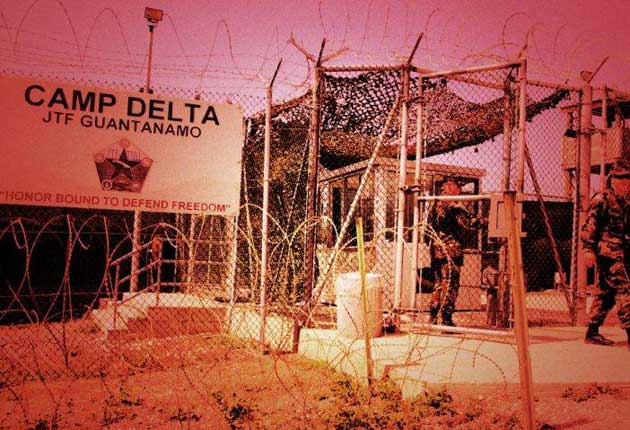New secret agent rules delayed 'after falling foul of torture laws'
MPs raise concerns over guidance on questioning of terror suspects abroad

Your support helps us to tell the story
From reproductive rights to climate change to Big Tech, The Independent is on the ground when the story is developing. Whether it's investigating the financials of Elon Musk's pro-Trump PAC or producing our latest documentary, 'The A Word', which shines a light on the American women fighting for reproductive rights, we know how important it is to parse out the facts from the messaging.
At such a critical moment in US history, we need reporters on the ground. Your donation allows us to keep sending journalists to speak to both sides of the story.
The Independent is trusted by Americans across the entire political spectrum. And unlike many other quality news outlets, we choose not to lock Americans out of our reporting and analysis with paywalls. We believe quality journalism should be available to everyone, paid for by those who can afford it.
Your support makes all the difference.Publication of an interrogation policy for Britain's secret agents has been delayed because of concerns that it may lead to members of MI5 and MI6 breaking anti-torture laws, it was claimed last night.
New guidance on the treatment and questioning of terror suspects held abroad had been expected yesterday after Gordon Brown committed the Government to disclosure last year. The revised rules follow a number of high-profile court cases in which MI5 and MI6 have been accused of complicity in torture.
But a Cabinet Office spokesman confirmed yesterday that the Government would not be able to meet its own deadline because of concerns raised by the committee of MPs which oversees the work of MI5 and MI6.
The admission led to accusations that the delay was because of legal problems over the use of the guidance. It was claimed that the revised guidance would still permit officers to be complicit in the ill-treatment of suspects.
David Davis, the former shadow Home Secretary, told The Independent that he had been informed that the guidelines had run into "serious legal difficulties". He said: "If the modern guidelines fall foul of the law we can only deduce that the old guidelines were completely illegal."
Kim Howells, chairman of the parliamentary Intelligence and Security Committee (ISC), said last week he had been assured by Mr Brown that the new policy would be published before yesterday's Commons debate on the committee's annual report.
But yesterday, a government spokesman said more work was needed on the guidelines in the light of the ISC's recommendations.
The spokesman said: "The Government is committed to publishing as soon as possible our consolidated guidance to personnel about the standards we apply during the detention and interviewing of detainees overseas. Our aim of consolidating and publishing this guidance is unprecedented," the spokesman said. "We welcome the critical contribution of the Intelligence and Security Committee in reviewing the guidance, as part of its important intelligence oversight role. The committee's report on the draft guidance is comprehensive and insightful, and has raised a number of issues that need further consideration. The Government has therefore asked the ISC to work with them to ensure that the Government's position on these complex issues is properly understood and to help them consider how best to ensure the Government provides clarity here."
Mr Davis's claims were supported by the disclosure of a previously unpublished statement on torture by the Foreign and Commonwealth Office (FCO) this week. The report says ministers will decide whether British officials should still assist in the detention and interrogation of suspects even in cases where there is a risk of ill-treatment.
The campaign group Human Rights Watch said: "In a section on counterterrorism, the FCO's report outlines, for the first time in public, a policy that appears to authorise direct participation by UK security agents in interrogations of detained terrorism suspects by foreign intelligence services, even where there is a risk that those detained are being tortured."
In a separate development, the ISC claims that government interference has threatened its independence. In a report published yesterday the MPs called on ministers to take steps to protect their independence by cutting the Cabinet Office's close ties to the ISC.
Join our commenting forum
Join thought-provoking conversations, follow other Independent readers and see their replies
Comments